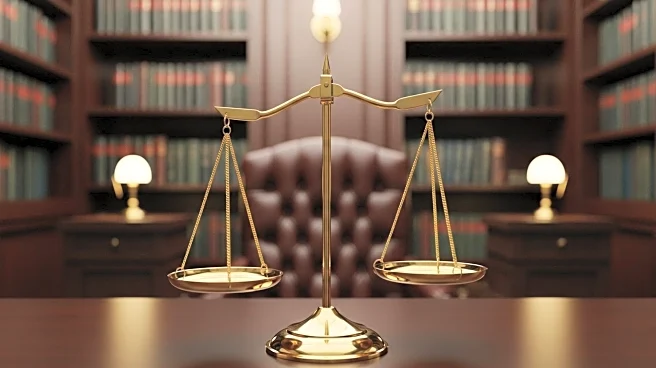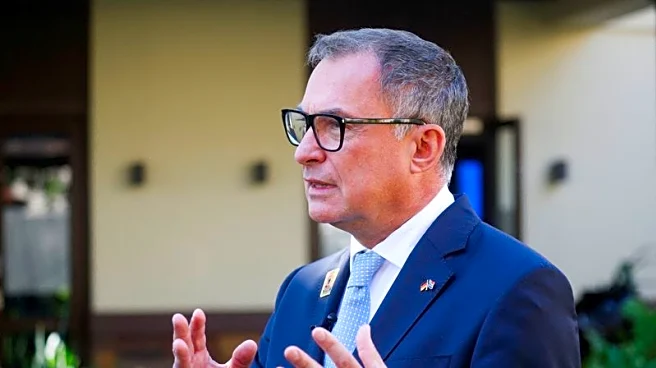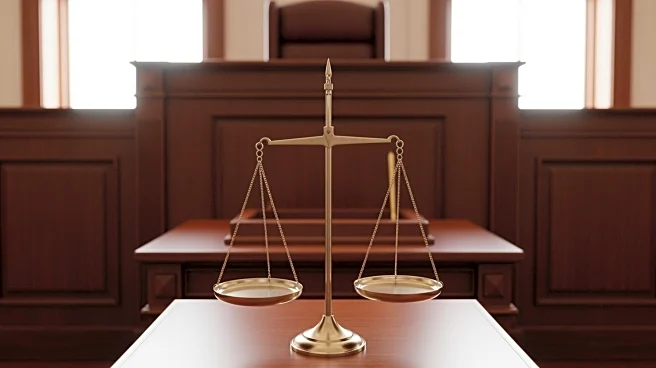What's Happening?
A former law clerk to Justice Clarence Thomas, Caleb Nelson, has expressed concerns about the Supreme Court's current trajectory towards a pro-president interpretation of the Constitution. Nelson, a legal scholar at the University of Virginia School of Law, argues that the Constitution provides Congress with significant authority to organize the executive branch and limit the president's power to remove officials. This issue is central to a case involving the removal of Federal Trade Commission leader Rebecca Kelly Slaughter by President Trump, which the Supreme Court will hear in December. Nelson warns that such interpretations could damage institutional norms, especially under a president with potentially destructive behavior.
Why It's Important?
The Supreme Court's decisions on executive power have significant implications for the balance of power within the U.S. government. A shift towards a unitary executive theory, which allows the president to remove executive branch officials at will, could centralize power significantly in the presidency. This has raised concerns among legal scholars about the erosion of checks and balances, potentially leading to increased presidential authority over federal agencies. Such a shift could impact regulatory practices and the independence of federal agencies, affecting various sectors and public policy.
What's Next?
The Supreme Court is set to hear arguments in December regarding the precedent that limits presidential power to remove independent agency regulators. The outcome could redefine executive power and influence future administrations. Legal scholars and political analysts are closely monitoring the case, as it could set a precedent for the extent of presidential control over the executive branch. The decision may also provoke reactions from Congress and civil society groups advocating for maintaining checks and balances.
Beyond the Headlines
The debate over the unitary executive theory touches on deeper constitutional interpretations and the role of originalism in judicial decision-making. Nelson's critique of the theory challenges the notion that originalist interpretations support expansive presidential powers. This discussion could influence future legal scholarship and judicial approaches to constitutional interpretation, potentially affecting long-term governance structures in the U.S.










